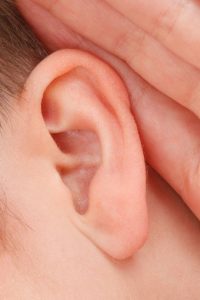One positive legislative achievement has somewhat miraculously taken place under President Trump: he signed a bill into law that should benefit millions of Americans.
The Food and Drug Administration Reauthorization Act of 2017 was signed on August 18, 2017, and includes a bipartisan provision on over-the-counter (OTC) hearing aids introduced by Senators Elizabeth Warren (D-Mass) and Chuck Grassley (R-Iowa). The Over the Counter Hearing Aid Act is designed to provide greater public accessibility and affordability with OTC hearing aids and to allow “adults with perceived mild-to-moderate hearing loss to access OTC hearing aids without being seen by a hearing care professional.” 
Organizations such as AARP, the Gerontological Society of America and the Hearing Loss Association of America endorsed the bill.
In 2014, an article by Brad Miller outlined the problems that this Act attempts to solve and brings some observations from Europe into the discussion.
“If a pair of hearing aids costs you $5,000 and you get a 20% to 40% savings, you’re still paying $3000 to $4000 on your own. Big deal; the price is still in the thousands of Dollars!
“… lowering costs can increase hearing aid purchases – but for that to happen, far more substantial price drops are necessary than the 20%-40%…. To demonstrate that, data about government reimbursement (or inversely, “out of pocket” expense) and adoption rates of hearing aids in Europe lends itself particularly well.
“Take the UK and Denmark, for example. The Brits and Danes effectively get 50% to 100% of their hearing aid costs reimbursed by the government (depending on whether they attend a private or public clinic). In comparison, other European countries like France, Germany or Italy, reimburse on average only 25%.
“The resulting difference in adoption rates of hearing aids in these two sets of countries is striking: the average adoption rate of hearing aids in the UK and Demark is more than two times higher than in countries where reimbursement lies between 10% and 40%!” (bold face and italics in original)
As with many other social and medical issues, consumers are urged to use care when making any OTC purchases. The Act is not universally supported. Critics caution that each person’s situation vis-à-vis their hearing is unique, so advice from a professional might be wise. Further, the Federal Trade Commission may be looking into “the myriad issues surrounding technology and competition in hearing aid distribution, as well as how OTC aids might impact customer satisfaction, the use of amplification products, consumer safety, and professional care.”
At any rate, the mere passage of the Act and its signing into law by an unpredictable President is a hopeful sign that some progress can at times be made. Thank you, Senators Warren and Grassley!

